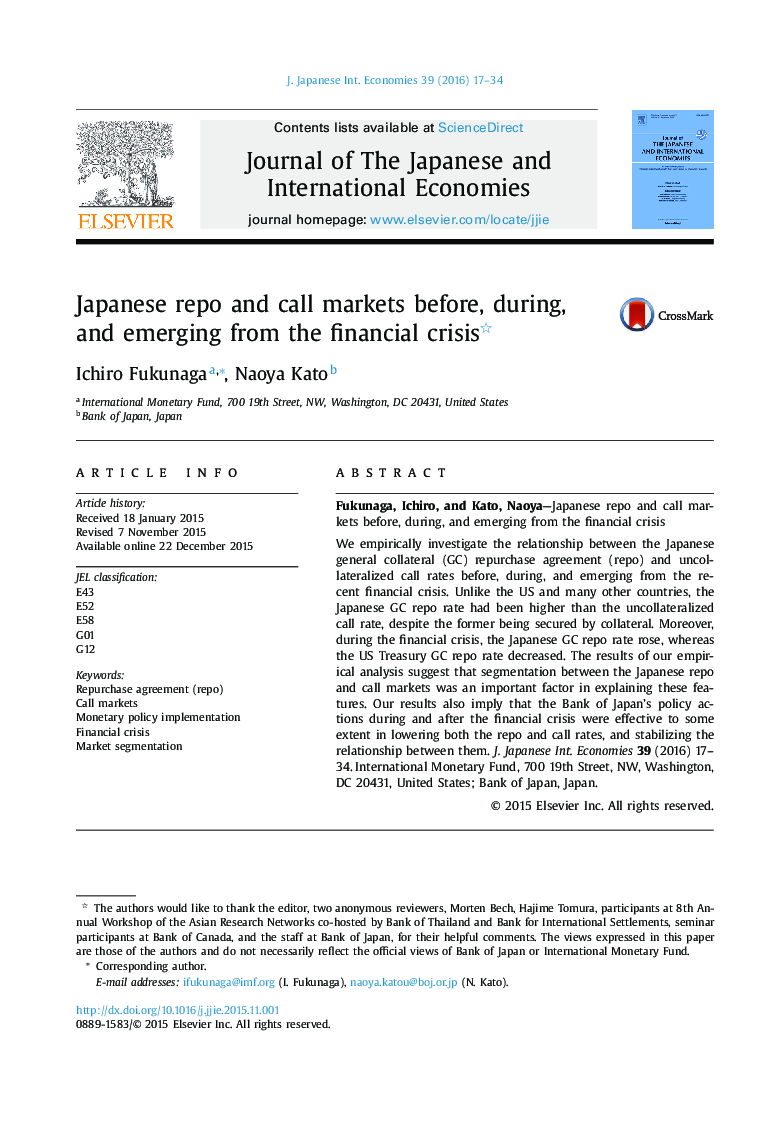| Article ID | Journal | Published Year | Pages | File Type |
|---|---|---|---|---|
| 964445 | Journal of the Japanese and International Economies | 2016 | 18 Pages |
•We empirically investigate the relationship between Japanese repo and call rates.•We discuss some unique features in the above relationship in Japan.•Segmentation between the two markets could explain these features.•The Bank of Japan’s policy actions were effective in stabilizing the relationship.
We empirically investigate the relationship between the Japanese general collateral (GC) repurchase agreement (repo) and uncollateralized call rates before, during, and emerging from the recent financial crisis. Unlike the US and many other countries, the Japanese GC repo rate had been higher than the uncollateralized call rate, despite the former being secured by collateral. Moreover, during the financial crisis, the Japanese GC repo rate rose, whereas the US Treasury GC repo rate decreased. The results of our empirical analysis suggest that segmentation between the Japanese repo and call markets was an important factor in explaining these features. Our results also imply that the Bank of Japan’s policy actions during and after the financial crisis were effective to some extent in lowering both the repo and call rates, and stabilizing the relationship between them.
